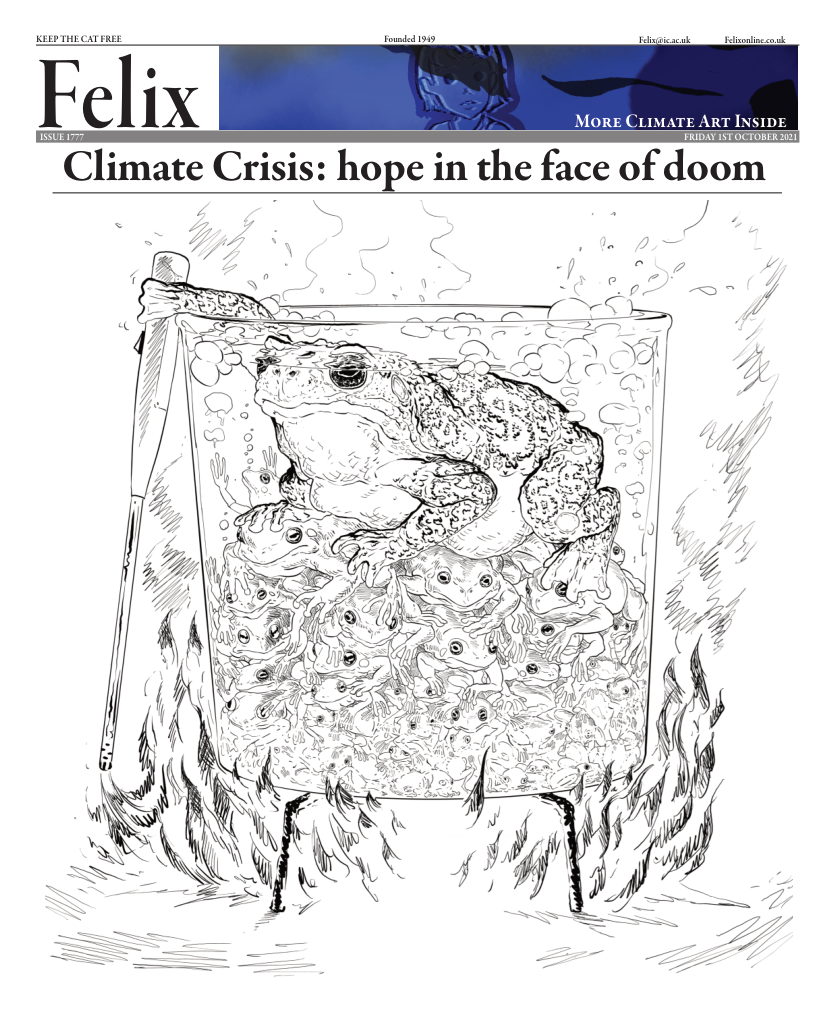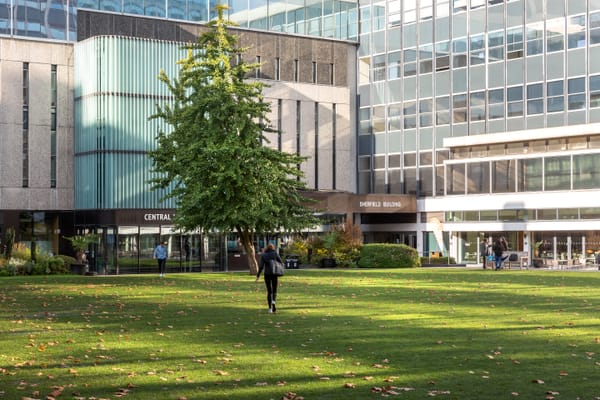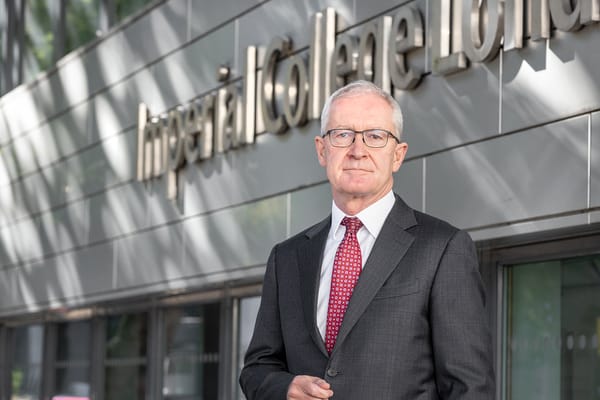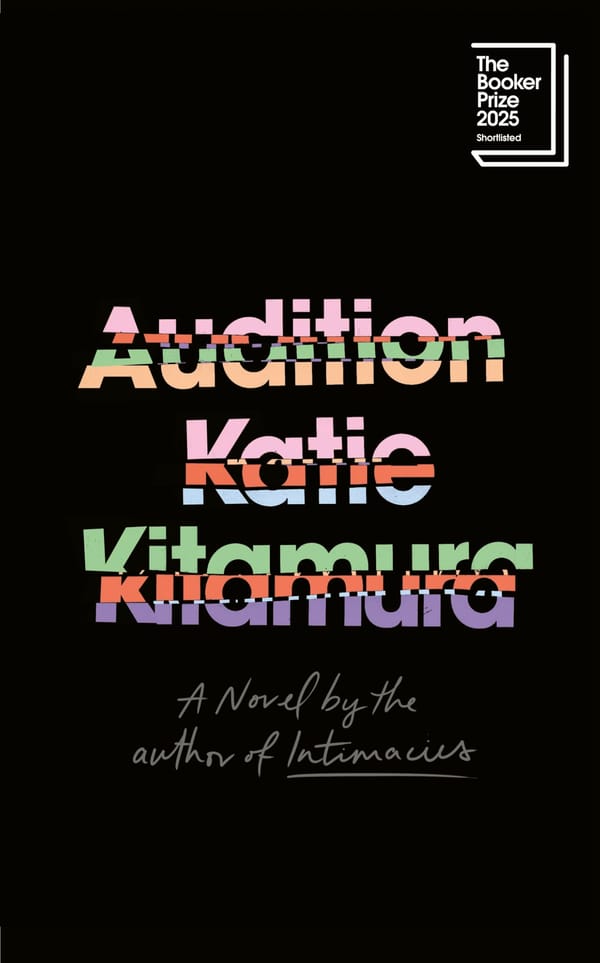Are the College Hypocrites?
An interview with the Chair of the Union's Sustainability Board
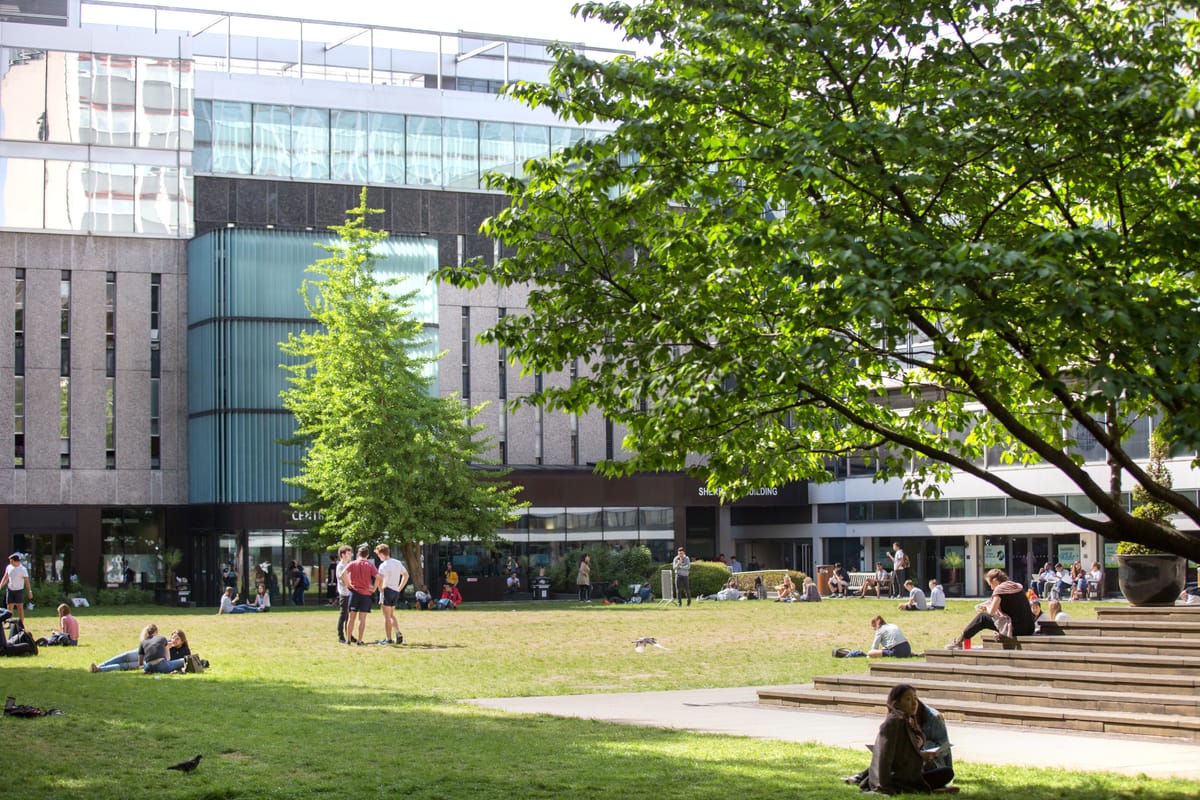
As may be apparent, the College is not exactly world-leading in its internal sustainability policies. I sat down with Sam Lee, your Deputy President for Finance and Services and Chair of the Services and Sustainability Board, to discuss how the Union is lobbying the College to change, and what powers it has exactly.
Q.
What is the SSB and what is your role in it?
A
. SSB stands for Services and Sustainability Board, I am the chair. It is 1 of 5 sub-committees of the Union Council. Each officer Trustee has a sub-committee within the Union and SSB is mine so I chair it. It is comprised of two smaller committees, the Sustainability committee and the Events and Venues committee. I see this as a crucial dialogue to be maintained within the Union as one should always consider the other. There is a split though - only those elected into sustainability-based roles are able to vote on sustainability issues. Members include the Ethics and Environment Officer, Environmental Soc president etc. On facilities we have some bar staff, a DramSoc rep. These reps together work towards a sustainable but productive way forward.
Q
. What is the board’s remit environmentally?
A
. As DPFS one of the by-law clauses is that my role is focussed on Union sustainability as well as lobbying the College. We try to encourage the College to do better at sustainability internally as well as with their associations with other companies
Q
. Do you have any specific examples of what you’re lobbying the College on?
A
. As a sub-committee of the Union Council it operates in the same way as others, where any member can produce a paper and bring it to the council and it is voted on. If approved I, and other Union members, can be compelled to undertake certain tasks or lobby on certain issues. An example is a cooperation with the anti-food waste company TooGoodToGo, where students and staff will hopefully be allowed to purchase food at a cheaper price when they’re about to go out of date. We currently don’t fully understand the College’s wastage programme, including the remit of the College in food waste disposal where the food could not be sold on, so this is something we need to hear more from them on.
Q
. Can the College overrule the SSB on anything?
A
. The SSB sits within the Union and not the College, meaning the College technically doesn’t have to do anything the SSB asks it to do. The SSB can only lobby or advise. However, as reps who will continue to foster good relations with College members of staff, we hope that they will realise this is in the interest of students and implement changes where they can. So far there have been clear issues that the College will not budge on despite Union pressure.
Q
. Many students are unhappy with the Union’s and the College’s use of single-use plastics, in cups, cutlery etc., which has been massively exacerbated by covid. Does the SSB have any plans in improving the footprint here?
A
. As we look forward to welcome week we have been mindful of this, given the large amount of food and drink that will likely be bought. I have spoken to the director of venues and director of Finance and Resources and we have agreed that all cutlery will from now be wooden rather than plastic. This is effective already and the Union will buy no more plastic cutlery, however there is still some plastic cutlery in circulation which had been bought before the decision was made. In the lead up to welcome week the venues team has been tasked with coming up with wider-ranging solution to single use plastics, which at the moment is looking like it’ll come in the form of a reusable plastic which can be used at times where we are unable to serve in glass. As many returning students will know this happens at certain times of the evening at 568 where continued use of glass could lead to injury of particularly inebriated students. These can either be washed and re-used, or taken out from a company that will continually come, clean them and return them for a very reasonable fee. The exact scheme is not yet decided. We are able to afford to do these schemes thanks to the new funding model which the Union recently switched to.
Q
. Where does food waste currently go from the Union?
A
. Food waste is currently very low as it’s mostly frozen. Food that does need to be wasted, for example from unfinished plates, is wasted under the College’s wider scheme of biodegradation. Excess food is fed into an anaerobic bioreactor which breaks it down and uses the energy released to generate electricity, which in turn powers the College.
Q
. Where decisions have been made, for example, on the wooden cutlery, is the use of “green” alternatives assessed qualitatively? I know, for example, that it is often more energy intensive and requires a lot more water to generate wooden cutlery when compared with plastic cutlery. Is there a data-driven way to come to these decisions or is it currently just on gut feel?
A
. Truthfully at the moment it is more intuitive, however that’s something we want to move away from. Our Back to Basics plan in the Union includes growth of our representation team, including hiring a policy officer and a campaigns officer. This will form a team that will research further these sorts of decisions, both within the Union and as material that can be used to lobby the College to improve. As a STEM institution we need to make these decisions on a data-driven basis. Currently people such as myself, who are not experts on these issues, are the main drivers of these policy changes. In the future we want to make more use of our expert volunteers to make more targeted decisions.
Q
. On a scale of pragmatism to idealism, one might assume that people such as the Environmental Society President would be more idealistic than most, and is also unlikely to have much industry experience. I don’t know whether this is the case, and the EnvSoc President might be an extremely pragmatic person, however I would be very surprised if the general state of people in similar positions wasn’t this way. Do you think inclusion of only these people might sway the Union’s lobbying so far in one direction that the requests become unreasonable and the College stops listening?
A
. The place the SSB sits on that scale changes year on year. The conversation occurs between the SSB and the College, mediated by the Officer Trustees. It is the job of the OTs to bring pragmatism to the requests of the SSB and frame them in a way most likely to get the College to listen. People elected into the environment-related roles will never usually have direct contact with the College in regards to environmental lobbying. I also think that the current state of affairs demands more idealism. Imperial College is very far behind in the industry and currently has no full-time member of staff responsible for Sustainability, although they are recruiting. The head of the Sustainability Advisory Board is also a Chemistry lecturer. The College needs to take this a lot more seriously. We are trailblazing in some research areas related to sustainability and the fact we are so far behind in our industry is not okay.
Q
. Would you say that the College’s current position is hypocritical, given what you’ve just said when comparing their courses offered to their internal actions?
A
. Truthfully, it comes across that way, and I don’t think anyone could see it differently. If you’re producing these people but not then utilising them there’s something wrong. A change in the College utilising the people who come out of these courses as experts would be welcomed by all, I believe.
Q
. How can students get involved in the Sustainability side of the Union?
A
. Involve yourself in the Union’s ethics and environmental network - they will be present at the Fresher’s Fair where you can join mailing lists. The SSB can be a bit daunting to bring a paper forward, however if you think there’s a real problem that needs solving within the Union or College, I would love to have a conversation with you, and we could end up producing a council paper that causes real change. Joining the Environmental Society, speaking to the Ethics and Environment officer, joining Veg Soc if you’re that way inclined, and many other options offer ways to expand your impact on helping climate change. The more people that get involved the bigger mandate we have for the College to change their ways.
TL;DR
The SSB is just a lobbying group, but it’s the most powerful lobbying group students have to influence the College. Sam is chairing it this year and changes within the Union are happening constantly. Single-use plastics are essentially out the door and the Union is going the extra mile in most aspects to reduce landfill and please students. Decisions surrounding sustainability are currently largely based on intuition but this will change in the future, and decisions will become increasingly data-driven. The College already has a fairly robust system of dealing with foodwaste in the form of a bioreactor that converts the energy from the waste into electricity, however this is a gem in quite a dull crown. Large plans for the future include cooperation with TooGoodToGo, which could allow students and staff to buy food close to its sell-by date at a reduced cost.

